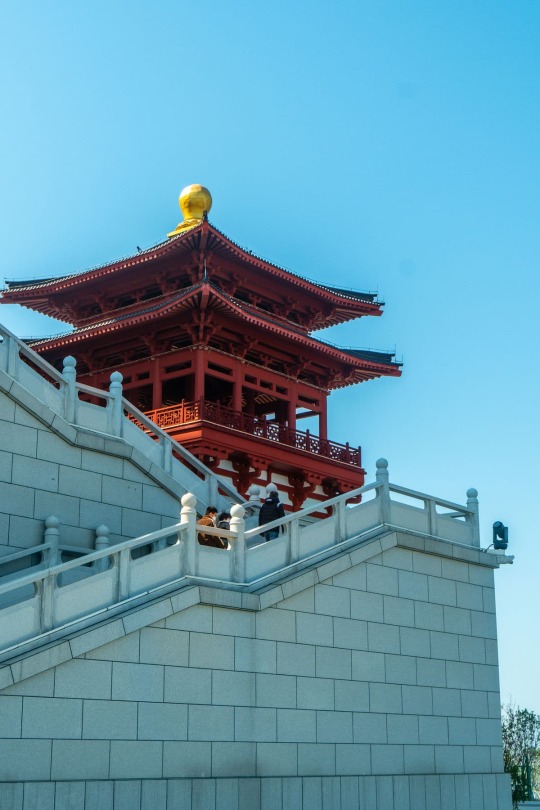#zhang jiuling
Text



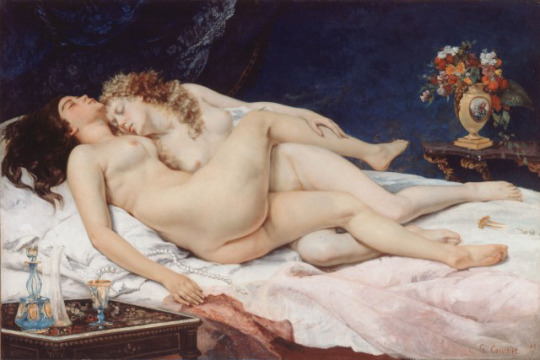



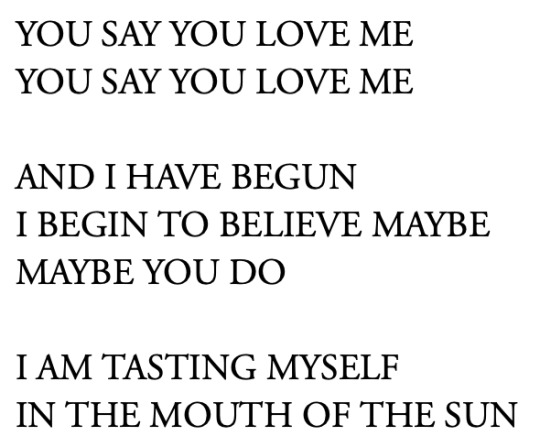
Maggie Stiefvater - Call Down the Hawk // Anne Carson- Grief Lessons: Four Plays by Euripides // Zhang Jiuling, ed. by Jane Portal, from Chinese Love Poetry; Looking at the moon and longing for a distant lover // Gustave Courbet - Le Sommeil ou Les Deux Amies (The Two Girlfriends) // Kenneth Rexroth - She Is Away // Madeleine Miller - The Song of Achilles // @interkellar [x] art by @nephrosoupp // June Jordan, from "Intifada Incantation: Poem #8 for b.b.L."
#made this thinking about my girl <3#web weaving#poetry#collage#anne carson#maggie stiefvater#Zhang Jiuling#gustave courbet#kenneth rexroth#madeleine miller#june jordan#painting#sapphic#lesbian#bisexual#wlw#women#gay#pride#dreaming
112 notes
·
View notes
Text
Since I cannot gather a handful of moonlight to give you, I shall go back to sleep and hope to meet you in a dream!
Zhang Jiuling
0 notes
Text
Shout out to my fandom wife and fellow poetry nerd Jojo for going on rants with me about the symbolism of bridges on this show. It's no coincidence that both past and present counterparts meet at that same wooden bridge.
There's the:
past meets present
friendship to lovers
journey to destination
life and death
passage of time symbolism more generally
Also love how Mujin named Aengcho after primrose, the floral symbol of youth and love. (Another shoutout to Alex who also noted the symbolism of flowers). Very fittingly and perhaps intentionally in a way that belies Mujin's hidden romantic/infatuated side (that he hides under insults, much like Shin Yu).
The full moon is another constant in both past and present. All these characters have been looking at the same face of the moon since joseon era. Not to be That Girl but is anybody else reminded of Zhang Jiuling's poem Looking at the Moon and Thinking of One Far Away. 🥲
It's interesting that the spells in Aengcho's spell book can only be succesfully performed under a full moon. The moon in some cultures symbolizes prosperity, fortune and the passage of time (again), so I wonder if casting spells under the full moon is just considered prosperous or auspicious, or whether it has a deeper meaning in shamanism/in this drama.
The white (pure, clean) spell casting outfit perhaps is meant to imitate the white glow of the full moon.
29 notes
·
View notes
Text
Yunmeng & Wei Changze (Meng Haoran 孟浩然’s "A Visit to Chancellor Zhang at Lake Dongting 望洞庭湖赠张丞相")
Has anyone ever wondered why Yunmeng was associated with a ton of lakes? Turns out that there’s an actual historical and geographical basis of this. And as a small bonus, Wei Changze’s also part of this meta.
The Yunmeng Marsh (云梦泽 Yunmeng Ze or the 云梦大泽 Yunmeng Big Ze) refers to a series of ancient lakes that spread across the Jianghan Plains in the Hubei Province, China. In the early Qin Dynasty, these series of lakes stretched 450km across. But however, due to the continuous sedimentation of the Yangtze River and Han River, the delta of the Han River was extended and the Yunmeng Ze has since been reduced. During the Wei, Jin and North and South Dynasties, it was reduced by half, and in Tang and Song Dynasties, it gradually became a cluster of small lakes. In modern times, these series of ancient lakes are gone and are no longer connected to one another.
And yes, Marsh/泽 Ze is the same word in Changze’s name. If you break Cangze’s name down, it means 长泽 Long Marsh, and it’s very similar form to 长江 Long River aka Yangtze River.
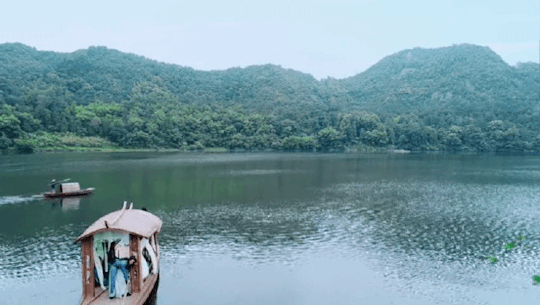
There’s a really cool documentary on its history but unfortunately it’s not subbed 😂😂
This line also appears in the Tang Dynasty poet Meng Haoran 孟浩然’s ”A Visit to Chancellor (丞相 Cheng Xiang) Zhang at Lake Dongting) 望洞庭湖赠张丞相". Zhang Jiuling 张九龄, is the chancellor who served in the Tang Dynasty under the Emperor Xuangzong.
During the period of the Three Kingdoms, the chancellor would assist the emperor in governing the country. This post was eventually abolished in the early Ming Dynasty. The poem is a gift, and it expresses the poet’s wish to meet the chancellor and laments that he can’t cross the Lake Dongting and envys the fish.
Lake Dongting is located in Western Hunan. Hubei (translated: North of the Lake) and Hunan (translated: South of the Lake) are both named after this lake.
八月湖水平,涵虚混太清。
In August, the lake’s almost levelled with the shore. Water and sky seems to blur together.
气蒸云梦泽,波撼岳阳城。
Mist rises from Yunmeng Ze, the waves seem to shake Yueyang City.
T/N: Yueyang City’s 岳阳城‘s located on the east of Lake Dongting.
欲济无舟楫,端居耻圣明。
I wish to cross the river, but I struggle to find a boat. Thus, I staying at home shamefully in theses peaceful times.
坐观垂钓者,徒有羡鱼情。
Sitting and watching the anglers cast their baits, but unfortunately I can only be envious of the fish.
羡鱼 - This is the same phrase that Wei Wuxian’s name’s based off. It's in the last line of the poem that I've previously translated. It does mean to covert after, but when literally translated it does mean “envy of fish”. I’ve translated it literally in this case so preserve the theme of the sentence . (ie. the anglers and the fish)
Related Meta:
Wei Wuxian's Name
More MDZS Meta
52 notes
·
View notes
Text
The four hundred kilograms of garbage were taken by truck to the South City Sub-Bureau. Wang Jiuling immediately went crazy. He said that if Bu Chonghua didn’t help him sort the garbage, the captain of the South City Criminal Investigation Unit would die there today, and tomorrow the Unit would have to wear mourning clothes and mourn the country’s (Emperor's) demise. He also wanted to support Zhang Xiaoli’s ascension to the throne, let the widowed Empress Liao Gang rule behind the scenes, and invite Princess Wu Yu to the Technical Team for marriage. From now on, the Criminal Investigation Unit would have to pay tribute to the Technical Team.
Bu Chonghua didn’t care if Empress Liao Gang ruled behind the scenes, but he couldn’t let Zhang Xiaoli with his low IQ ruin the country he had fought for half his life and give Wu Yu away for marriage. Therefore, he had to be held hostage in the autopsy room with Wang Jiuling to sort through hundreds of kilograms of garbage, picking out cigarette butts with steel chopsticks in the rotting pile of garbage. They sorted for several hours until Empress Liao Gang, who was solving another poisoning case, rushed to the scene and rescued Captain Bu, who was seemingly immobile but was agitated inside.
they are so fucking funny
2 notes
·
View notes
Photo
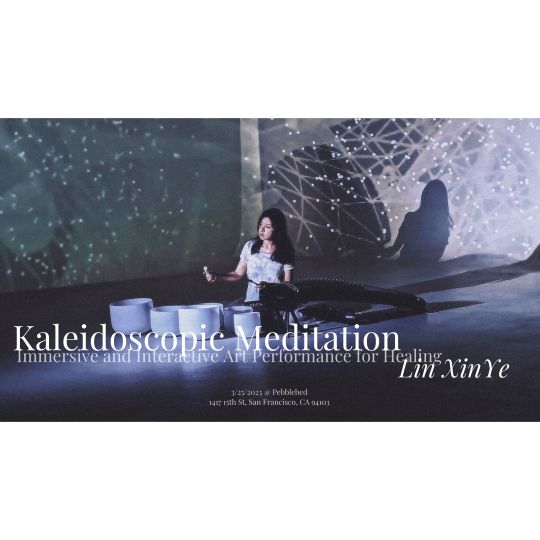
昨夜凤池头,今夜蓝溪口。明月本无心,行人自回首。
Last night at Fengchi pool, tonight at Lanxi river head. The bright moon is indifferent, but the traveler can't help but turn back to chase and take a glance.
Takeaway: People give meaning to different things. If you think others cannot understand you, why even bother to worry about their perspective?
(Note: This is a famous poem from the Tang Dynasty, written by the poet Zhang Jiuling.)
Follow ins @kaleimedi for more healing art performance events updates
0 notes
Video
undefined
tumblr
Orchid and Orange 1
(Five character ancient verse, Zhang Jiuling, Tang Dynasty)
Tender orchid-leaves in spring
And cinnamon blossoms bright in autumn
Are as self-contained as life is,
Which conforms them to the seasons.
Yet why will you think that a forest hermit,
Allured by sweet winds and contented with beauty,
Would no more ask to be transplanted
Than would any other natural flower?
0 notes
Photo

Zhang Jiuling, ed. by Jane Portal, from Chinese Love Poetry; “Looking at the moon and longing for a distant lover”
#excerpts#writings#literature#poetry#zhang jiuling#fragments#selections#words#quotes#lit#typography#poetry collection#poetry in translation#chinese literature#chinese poetry#love#moonlight#dreams#sleep#longing
14K notes
·
View notes
Photo

Poem about the moon
Lucien Vaudrey, high on life after getting a curse removed, waxing poetic about the moon. A Charm of Magpies is probably my favourite series, and listening to the audiobooks again put me in the mood for art ^_^
So, my Chinese (Mandarin) is pretty basic (apologies for the poor handwriting!). Certainly not good enough to be composing poetry. So I have Crane reciting the first two lines of the famous Tang Dynasty poem Looking At The Moon And Thinking Of One Far Away (望月怀远 ) by Zhang Jiuling (张九龄).
Completed November 2020
#kj charles#a charm of magpies#the magpie lord#lucien vaudrey#earl crane/viscount fortunegate#zhang jiuling#book fanart
93 notes
·
View notes
Quote
蘭葉春葳蕤, 桂華秋皎潔;
欣欣此生意, 自爾為佳節。
誰知林棲者? 聞風坐相悅,
草木有本心, 何求美人折?
Tender orchid-leaves in spring
And cinnamon- blossoms bright in autumn
Are as self- contained as life is,
Which conforms them to the seasons.
Yet why will you think that a forest-hermit,
Allured by sweet winds and contented with beauty,
Would no more ask to-be transplanted
Than would any other natural flower?
Orchid and Orange I (感遇其二) by Zhang Jiuling (張九齡). Tang Dynasty.
Zhang Jiuling (678-740), courtesy name, Zishou (子壽) and nicknamed Bowu (博物), was a notable poet and scholar of the Tang Dynasty. He was also Count Wenxian of Shixing (始興文獻伯) and was a prominent minister who served as a chancellor during Emperor Xuanzong’s reign. The poem’s first line is the arrival of tender orchid in spring, and sweet osmanthus in autumn. Osmanthus, known as sweet olive, or tea olive, is a symbol of love and romance. Zhang was also a commandant of the city of Guilin for a period of time. Guilin, meaning, “fragrant forest,” was distinguished for its fragrant blooming Osmanthus and as a destination of enlightenment for Buddhist monks.
Follow sinθ magazine for more daily posts about Sino arts and culture.
#zhang jiuling#orange and orchid 1#tang dynasty poetry#three hundred tang poems#chinese classical poetry#week 109#nc
38 notes
·
View notes
Quote
Since I cannot gather a handful of moonlight to give you, I shall go back to sleep and hope to meet you in a dream!
Zhang Jiuling
0 notes
Note
Vellichor
obscure feelings prompt
vellichor: the strange wistfulness of used bookshops
Baoshan Sanren kept many books and texts on her mountain and Xiao Xingchen had read every one. He had favorites that he went back to over and over, until he knew all the words by memory, knew which books had loose binding and which pages were bent slightly.
There were many books at Baixue temple and Song Lan spent most of his time surrounded by them. They were neat and quiet and each one had something to say, if only someone would take the time to listen. He liked to listen, to hear the things no one else did.
It was there, in the library of Baixue temple, that they had first met, truly met, and not the awkward staring from when Xiao Xingchen had first arrived. He had been stared at before, but not in the way the serious-faced boy in black had. Xiao Xingchen had told himself that he would speak to him when he found the chance but the chance had found him, as it were.
A soft clearing of the throat made Xiao Xingchen look up from the text he was pouring over. Song Lan’s shoulders were stiff but the barest a smile, nervous and hopeful, was on his face. He held out a book and Xiao Xingchen took it, his smile bemused.
“I think you would like this one,” he said.
“Why do you think so?” asked Xiao Xingchen, the smile warming his eyes.
Song Lan’s cheeks went red. That hadn’t been the question he expected but as unexpected as the question was, it was
“It’s-- It’s my favorite.”
“Then I’m sure I’ll like it.”
Even though it had been years, that memory came back to Xiao Xingchen the moment they stepped into the library. The smell of old parchment and the incense of the Baixue temple. The way Song Lan’s face had looked standing next to the table he sat at. How the book Song Lan had given him almost felt familiar despite never seeing it before.
“Xingchen? I’ve found the books that I need for the lessons. Is everything alright?”
Song Lan touched his arm gently and he turned in that direction with a smile, slipping his arm through the crook of Song Lan’s elbow.
“Sorry, I was only thinking,” he said, falling quiet for a moment. “I remember the library at your temple.”
The mention of Baixue temple made Song Lan tense briefly, very so briefly, before he pulled Xiao XIngchen closer. When he spoke, the bittersweet smile was clear in his voice.
“I remember as well.”
Xiao Xingchen reached out, fingers finding the bookshelf and tracing over the bindings, running over the pages. He imagined he could almost feel the ink beneath his fingertips.
“I still have your favorite poem memorized.” His smile was fond, wistful. “The moon, grown full now over the sea. Brightening the whole of heaven, brings to separated hearts, the long thoughtfulness of night…”
“It is no darker though I blow out my candle. It is no warmer though I put on my coat. So I leave my message with the moon, and turn to my bed, hoping for dreams,” finished Song Lan, voices overlapping.
“Yes,” Xiao Xingchen said. “You’ll have to read to me as well. Let’s go home.”
#songxiao#well. you know. it's set in this blog's timeline so 'lessons' here applies to a qing etc.#also i had to use a cut because i got carried away AGAIN#for those wondering the poem is#looking at the moon and thinking of one far away#by zhang jiuling#post yi city#justastoryteller#|✉| I HAVE ANSWERS#drabbles
10 notes
·
View notes
Text
do you stumble upon and subsequently cry at 1200 year old poetry in the middle of the night or are you normal
#honestly is the fact that it's 1200 years old really super relevant? Not really but at the same time it is so SO humanizing and so honest#to goodness lovely that the feelings you feel aren't new. people have always been people and people have always been able to feel just as#deeply and as beautifully as you are now and they've been able to express it#the fact that a Chinese poet/chancellor and scholar who died 1281 years ago wrote something in his lifetime that resonates with me who has#literally not a single thing in common with him so many years later is just incredible and beautiful#what an impact words can have#If you're curious the poem is Looking at the Moon and Thinking of One Far Away by Zhang Jiuling#poetry is rad#My post
1 note
·
View note
Text
Ponieważ nie mogę zebrać garści księżyca, aby Ci go dać, pójdę spać z nadzieją spotkania Ciebie we śnie.
~Zhang Jiuling
#cytaty#polskie cytaty#cytat po polsku#cytat o życiu#cytat dnia#wiedza#inteligencja#unrequited love#związek#uczucia#milosc#zakochanie#miłość#cytat o milosci#cytat o uczuciach#nieodwzajemniona miłość#nieszczesliwa milosc#kocham#prawdziwa miłość#ból#ból emocjonalny#ból życia#samotność#cierpienie#emocje#życie#cytat#smutny cytat#cytat o miłości#tęsknie za tobą
327 notes
·
View notes
Text




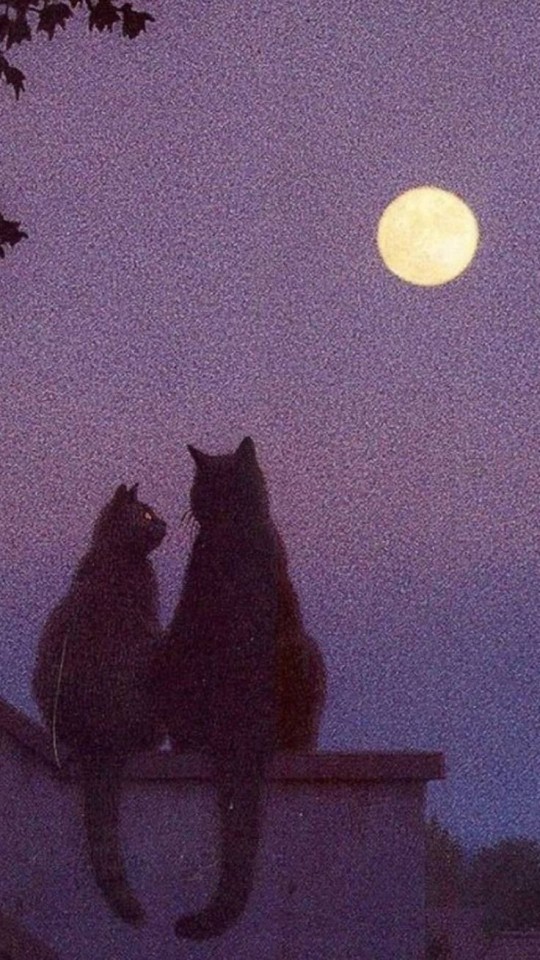
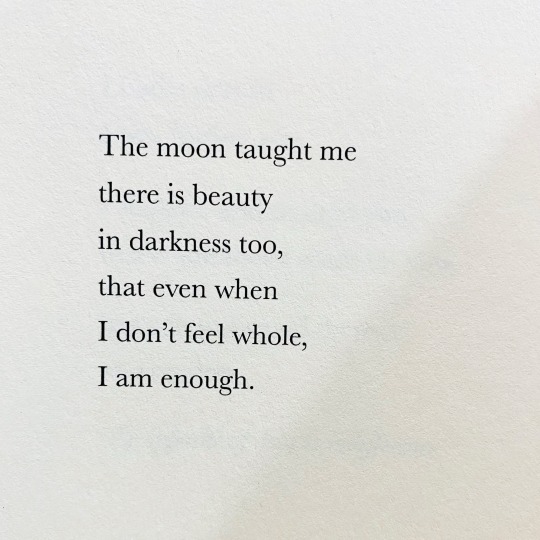
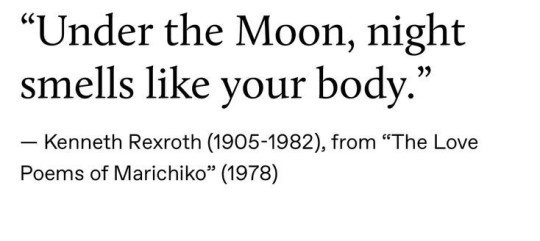
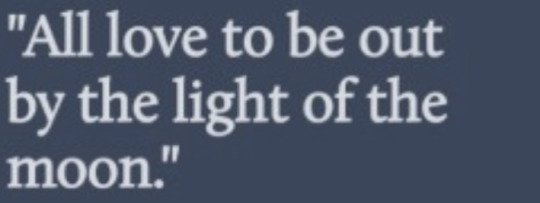
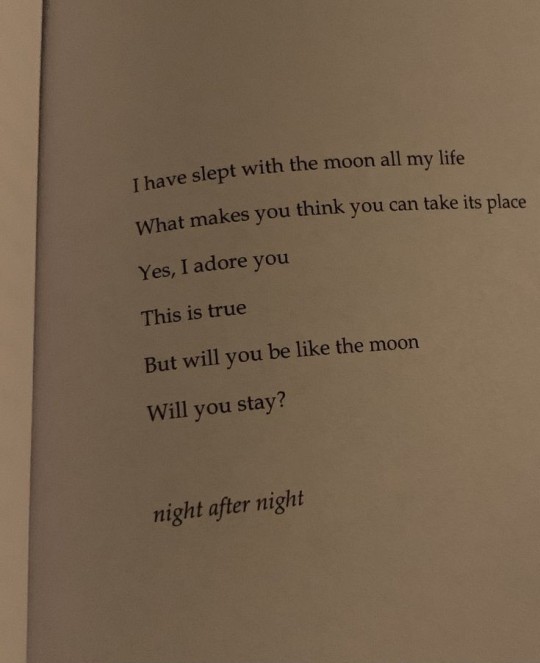

Joy Harjo, from An American Sunrise: Poems; “Falling from the night sky (a song)” // Virginia Woolf, from a letter to Vita Sackville-West c. October 1928 // Zhang Jiuling, ed. by Jane Portal, from Chinese Love Poetry; “Looking at the moon and longing for a distant lover” // When the Sun Loves the Moon by Reinaeiry // From the book "Nero Corleone/A Cat's Story", by Elke Heidenreich; Quint Buchholz // 🌕 // 🌕 // 🌕 // 🌕 // Moondance by Van Morrison
64 notes
·
View notes
